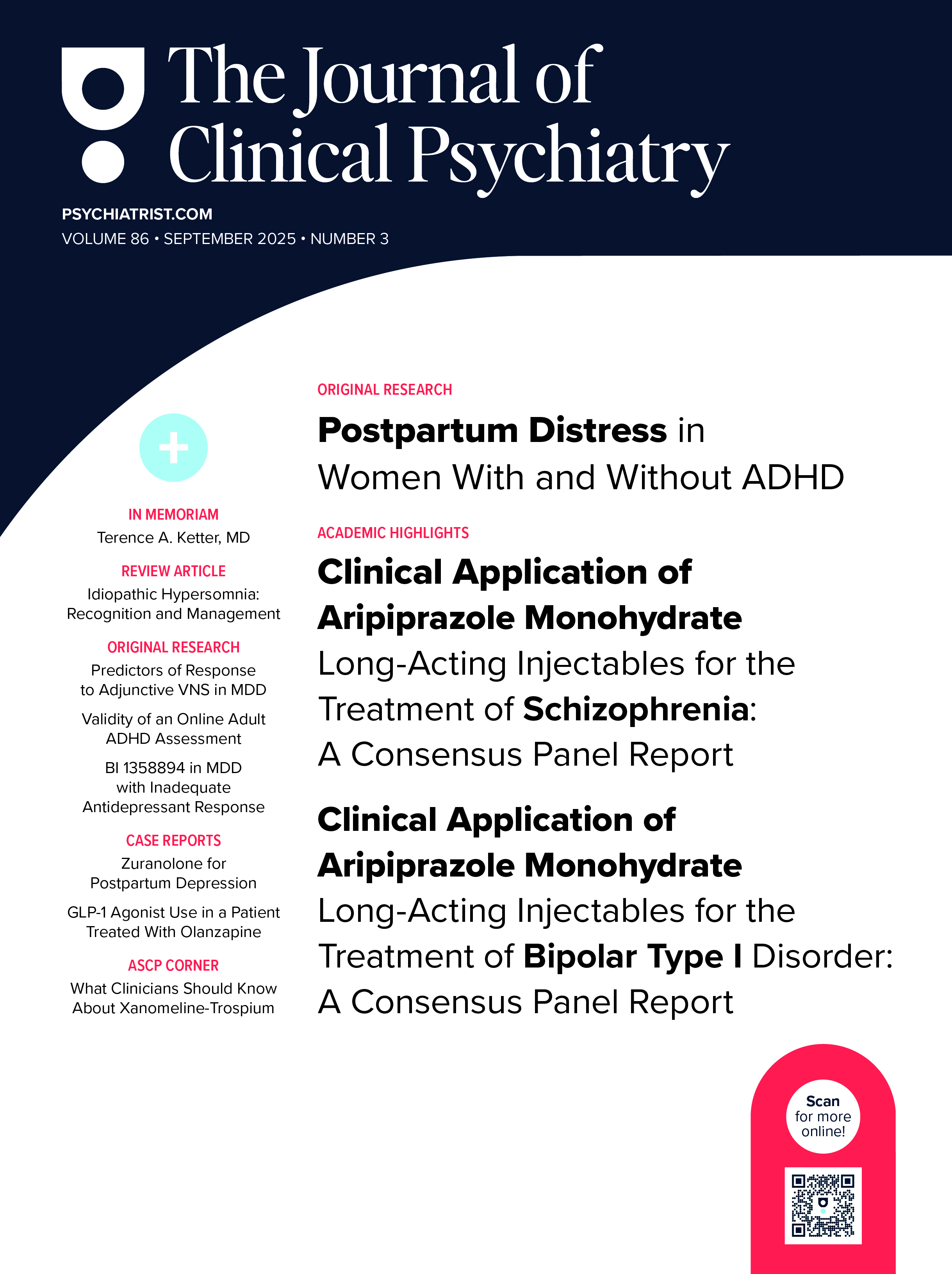Background: Major depression associated with aging in males may improve with anabolic/androgenic steroid therapy. The efficacy and safety of testosterone therapy in the treatment of depression in elderly hypogonadal males is inconclusive. The following study identifies a subgroup of elderly depressed males who may benefit from testosterone therapy.
Method: Participants included 16 elderly eugonadal males with major depressive disorder (DSM-IV criteria) and a Hamilton Rating Scale for Depression (HAM-D) score >18. Following a single-blind 2-week placebo lead-in, patients were randomly assigned to treatment with either a physiologic dose of testosterone cypionate (TC), 100 mg/week, or supraphysiologic dose of 200 mg/week IM for 6 weeks. Psychometric testing was carried out at entry into the study, at the TC injection baseline, and every 2 weeks thereafter. Tests included an objective measurement, the HAM-D, and the Buss-Durkee Hostility Inventory.
Results: One patient meeting inclusion criteria responded during the placebo lead-in; thus, 15 patients were randomly assigned to treatment (100 mg/week, N=8; 200 mg/week, N=7). There was a 42% decrease in the mean HAM-D scores from 20.1 to 11.9 (p=45 years old) depression patients, whose mean HAM-D score decreased from 19.8 to 9.3 (53%), versus the 5 early-onset depression patients, whose mean HAM-D score decreased from 20.8 to 17.0 (18%) (p=.0110). The TC dose did not affect the response. Similar HAM-D decreases of 43% and 41% occurred for the respective 100- and 200-mg/week doses. The HAM-D responder analysis found that none of 5 early-onset patients had HAM-D response, whereas 6 (60%) of 10 late-onset patients responded (p=.025). Similarly, none of the early-onset patients experienced a remission whereas 5 (50%) of the late-onset patients were categorized as remitters (p=.053). Correlations between the peak and mean total testosterone concentrations and HAM-D change scores suggested that only minimal TC doses were required to produce an antidepressant effect.
Conclusion: These data suggest that testosterone therapy would best be limited to men with late-onset depression. The findings suggest that short-term therapy with TC is safe. Long-term treatment safety is unknown. Psychiatrists using testosterone therapy should ascertain that patients have been recently valuated for prostate cancer. If testosterone therapy is initiated, serial serum prostate-specific antigen sampling should be used for monitoring patients’ prostate status.
Please sign in or purchase this PDF for $40.00.





